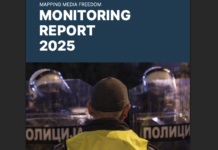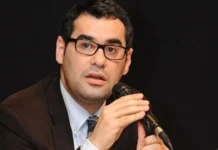A report released on June 10 by the Center for American Progress (CAP), an independent nonpartisan policy institute based in Washington, D.C., maps out Turkey’s changing media landscape.
“Numerous human rights reports document how the Turkish government has sought to muzzle the press, whether by imprisoning journalists, eliminating news outlets, or overseeing the purchase of media brands by pro-government conglomerates,” say the authors of the report, titled “Turkey’s Changing Media Landscape” — Andrew O’Donohue, a research fellow at the Istanbul Policy Center; Max Hoffman, associate director of National Security and International Policy at CAP; and Alan Makovsky, a senior fellow for National Security and International Policy at CAP.
Citing Reporters Without Borders the report added, “The regime has been ‘tightening the vice [sic] on what little is left of pluralism,’ and Turkey is now ‘the world’s biggest jailer of professional journalists.”
Based on data collected in a survey in Turkey conducted for CAP by Metropoll from May 24, 2018 to June 4, 2018, consisting of face-to-face interviews with 2,534 people in 28 provinces, the authors write that “this report sheds light on the pervasive distrust and deepening fragmentation of Turkey’s media environment.”
According to the report, “Despite this heavy censorship, two key trends have undercut President [Recep Tayyip] Erdoğan’s efforts to control the media landscape: rising distrust toward the media and increasing fragmentation in the ways that Turks get their news.”
“The Turkish media is currently embroiled in a crisis of public confidence that is fueling profound changes in patterns of news consumption,” the report adds.
Citing the Metropoll survey the report asserts that “[a] remarkable 70 percent of respondents thought that the media ‘presents biased and untrustworthy information,’ and a majority—56 percent—thought that the press ‘is not able to speak freely and is more controlled by the government.”
The report further finds that deepening partisan cleavages, widening generational divides and the surprising staying power of local newspapers are three key trends that have in recent years led to increasing fragmentation in patterns of news consumption among the Turkish public.
The report studies the political implications of Turkey’s changing media landscape. “The changing patterns of news consumption potentially have major implications for Turkey’s political divisions, Turkish foreign policy, and President Erdoğan’s political fortunes,” the report argues.
“The Turkish government’s muzzling of the media has also harmed the nation’s security by debilitating public oversight of foreign policy decision-making and creating fertile ground for Russian influence operations. At the same time, this media crackdown may have profound consequences for Turkey’s domestic balance of power, as it has driven many citizens toward the more open world of social media and thus created new vulnerabilities for President Erdoğan.”
Turkey has been experiencing a backslide in human rights in recent years that has further deteriorated since a failed coup in 2016. Following the abortive putsch and under the guise of countering terrorism, the Turkish government carried out an unparalleled crackdown on dissidents including critical media outlets, closing down more than 200 news outlets including the country largest daily as well as most popular TV networks by decree-laws enacted during a two-year state of emergency declared after the coup attempt.
According to the Reporters Without Borders’ (RSF) recently published 2020 World Press Freedom Index in which Turkey was ranked 154th among 180 countries in terms of press freedom, Turkey is the world’s biggest jailer of professional journalists. The Stockholm Center for Freedom (SCF) has documented that 165 journalists are currently behind bars in Turkey, while 167 wanted on fabricated terrorism charges have been forced to live in exile.
















[…] according to a report by the Center for American Progress (CAP), despite heavy censorship, two key trends undercut […]
[…] according to a report by the Center for American Progress (CAP), despite heavy censorship, two key trends undercut […]
[…] to a report by the Center for American Progress (CAP), despite heavy censorship, two key trends undercut […]